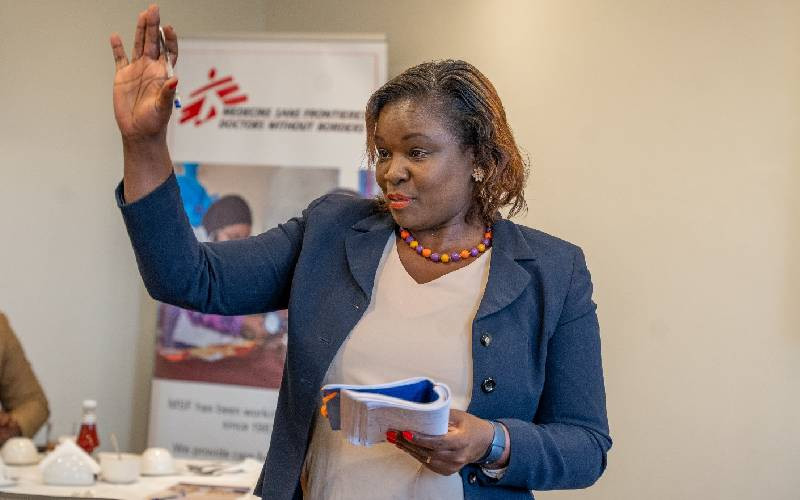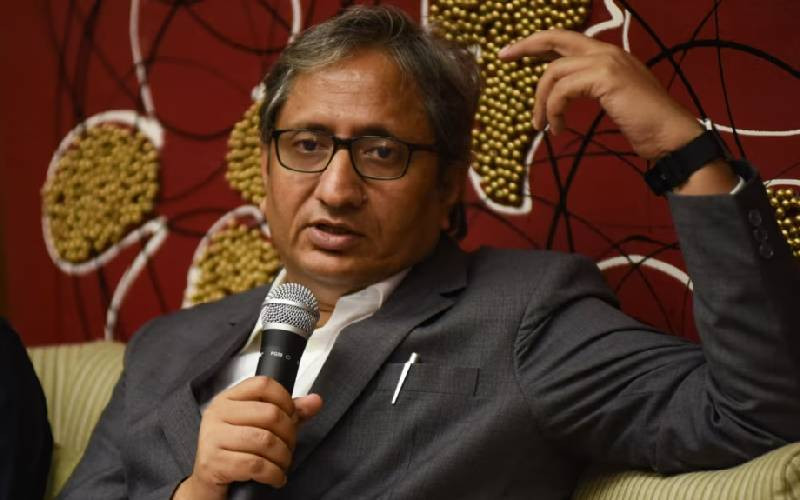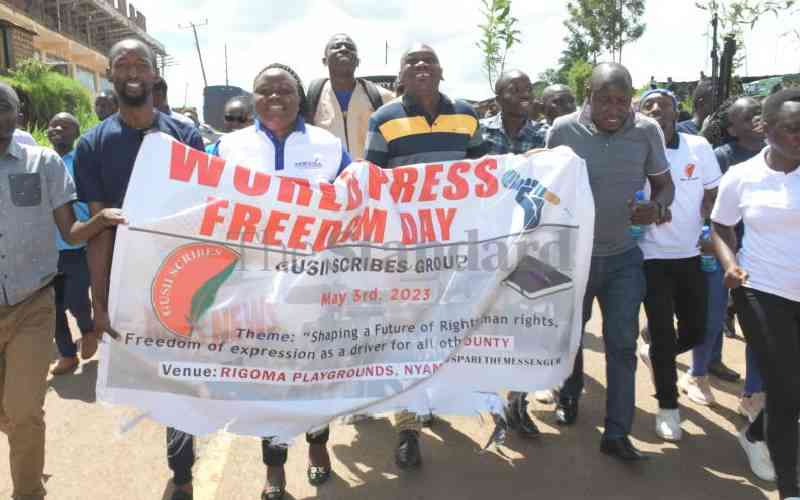By Juma Kwayera
Parliament plans to give the State’s spy agency the power to detain or jail anyone found in possession of classified documents. Intelligence officers will be allowed to bear arms and work outside the limits of the Constitution.
They will also have sweeping powers to search or confiscate private property.
With apparent disregard for public interest, legislators have crafted a repressive law that could be used against journalists, whistle-blowers and perceived political dissidents.
Once the National Intelligence Service Bill 2012 is passed, you will be required to destroy any sensitive information you come across or Bill has sparked alarm in some quarters and been termed unconstitutional.
“They are trying to create a loophole for covering corruption in high places,” charged presidential hopeful Paul Muite. Many Members of Parliament, however, see no problem with the law and say the war on terror justifies it.
“It will (improve) the gathering of information, more so given terrorism threats across the globe and cyber crime,” says Dujis MP Aden Duale. Meeting in Mombasa last week, MPs cleared the Bill for debate in the House despite objections that sections of it claw back gains made since the Kanu era. It is feared the proposed law will be used to prevent or punish the use of court processes or investigative journalism to hold Government to account. It could also stop the exposure of economic crimes, abuse of office, Executive mistakes, and other misdeeds on the grounds of ‘national security’.
Human rights lawyer Harun Ndubi warns the Bill gives the spy agency a free hand to use repressive means to deprive the public of the right to information.
“You cannot criminalise (the acquisition of) information that lawyers need for their clients’ cases or investigative journalists require as matter of public interest,” he says.
This is not the first attempt to limit public oversight of the Government on the grounds of “national security”. In 2010, the National Security Intelligence Service (NSIS) was accused of making a secret change to a draft of the proposed constitution at the Government Printer. Two words, “national security”, were illegally added to clause 24(1)(d) on the limitation of the Bill of Rights. This would have allowed fundamental rights to be suspended at any time on grounds of national security.
The intervention of a whistleblower forced then Attorney General Amos Wako to withdraw the doctored document. No criminal charges were brought in relation to the incident, with only administrative measures against staffers at the Government Printer.
The draft law could usher in a new era of Government secrecy at a time when Cabinet ministers, permanent secretaries and other officials are avoiding any paper trail for some of their activities.
Past investigations by this paper have shown instances where ministers issue legal instructions in writing and then countermand them with illegal verbal commands. If caught, such officials will soon be able to thwart accountability by invoking “national security”.
Already, the Bill has touched off controversy over provisions that criminalise access to – or failure to destroy – information deemed to be injurious to national security. Fears it will lead to political and Press repression came up during the recent MPs’ meeting in Mombasa.
Lawmakers from key House committees (Defence and Foreign Affairs, National Security and Constitution Implementation Oversight) met with officials from the Commission for Implementation of the Constitution (CIC) on the proposed law.
Stay informed. Subscribe to our newsletter
Competing jurisdiction
Some noted the proposed law would create competing jurisdictions. Provisions for detention of suspects beyond the period provided for in the Constitution are being decried as a form of detention without trial. Wajir West MP Adan Keynan, who chairs the Defence and Foreign Affairs team, expressed concern that giving the NIS arrest and detention powers will create conflict with the Police. He said the powers vested in the intelligence service could be misused leading to the creation of ‘death squads’.
Some 50 or so MPs were ferried to Mombasa last week to read through the proposed law with the intention of ensuring it passes when it is tabled in the House for debate.
Section 60 of the Bill they approved states: “Any person who is not a member of the service who obtains, attempts to obtain or is found in possession of classified information, documents or records without the approval of the Director-General or without lawful authority or excuse commits an offence and is liable on conviction to imprisonment for a term not exceeding seven years.”
The Bill defines classified information as “information of a particular security classification, whose unauthorised disclosure would prejudice national security.”
Constitutional lawyer Haron Olando of Olando, Udoto & Okello Advocates describes the definition as vague and a potential tool of repression. He argues the Bill is an extreme form of censorship as it prohibits unauthorised access and retention of information by any person who is not a member of the NIS. “Given the vital role played by media in Kenya, this amounts to gagging the media,” Olando says.
Civil society and human rights campaigners say the State is seeking to revoke basic rights through the backdoor. According to Article 35 of the Constitution: “Every citizen has the right of access to: information held by the State; and information held by another person and required for the exercise or protection of any right or fundamental freedom.”
It further says: “The State shall publish and publicise any important information affecting the nation.”
In the National Intelligence Bill, classified information can only be obtained with the authority of the Director General of the NIS or the relevant Cabinet Secretary (minister). Information gained without their authority must be destroyed. Failing to do so is an offence that attracts a three-year imprisonment on conviction.
Harun Ndubi says provisions on classified information will be a drawback to media, political and academic freedoms, as well as legal practice.
“The Bill is fraught with ambiguities,” he says. “For instance, who decides that information is a security risk? Ordinary people do not have the expertise to tell classified from non-classified information.”
 The Standard Group Plc is a
multi-media organization with investments in media platforms spanning newspaper
print operations, television, radio broadcasting, digital and online services. The
Standard Group is recognized as a leading multi-media house in Kenya with a key
influence in matters of national and international interest.
The Standard Group Plc is a
multi-media organization with investments in media platforms spanning newspaper
print operations, television, radio broadcasting, digital and online services. The
Standard Group is recognized as a leading multi-media house in Kenya with a key
influence in matters of national and international interest.
 The Standard Group Plc is a
multi-media organization with investments in media platforms spanning newspaper
print operations, television, radio broadcasting, digital and online services. The
Standard Group is recognized as a leading multi-media house in Kenya with a key
influence in matters of national and international interest.
The Standard Group Plc is a
multi-media organization with investments in media platforms spanning newspaper
print operations, television, radio broadcasting, digital and online services. The
Standard Group is recognized as a leading multi-media house in Kenya with a key
influence in matters of national and international interest.









